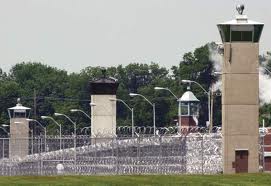Judge upholds government's right to refuse prisoner transfer: West Boundary man remains in US prison
By Derek Abma
Postmedia News
OTTAWA —
A Federal Court judge has upheld the minister of public safety’s right to refuse requests from prisoners being held in other countries to transfer to Canada to serve their sentences.
The decision was prompted largely by an application from Perley Holmes, a British Columbia man imprisoned in the United States. He was convicted of cocaine-smuggling after his arrest in January 2007.
Holmes’ lawyers argued that preventing him from serving his sentence in his home country infringed on the Charter of Rights and Freedoms provision that affords Canadian citizens the right to enter their own country.
However, Justice Michael Phelan found that the International Transfer of Offenders Act, which gives the public safety minister discretion in such cases, is a “reasonable limitation” allowed by the charter on certain rights.
The decision noted that the minister of public safety, in assessing a prisoner-transfer application, is to consider the following: whether the applicant poses a threat to Canada; whether they intended to abandon Canada as a permanent residence when they left; whether they have social or family ties in Canada; and whether staying in their country of imprisonment poses a threat to their personal security or human rights.
Holmes, a former union boss, was sentenced to eight years in prison in July 2007 after pleading guilty to cocaine smuggling. NDP MP Alex Atamanenko has lobbied the government for Holmes’ return, citing the fact that his family remains in B.C.
John Conroy, Holmes’ lawyer, said Thursday he would likely recommend that his client appeal the court’s decision.
Aside from disagreeing with the judge’s interpretation of Holmes’ charter rights, Conroy said it would make more sense, from a public safety standpoint, for the government to want those criminals likely to be deported back to Canada upon their release to be part of the Canadian correctional system.
“It doesn’t make logical sense in terms of the public interest, in my mind, to deny these transfers, because approving them enables us to get to know the citizen who’s ultimately coming back anyways,” he said.
dabma(at)postmedia.com
Twitter.com/derekabma






















